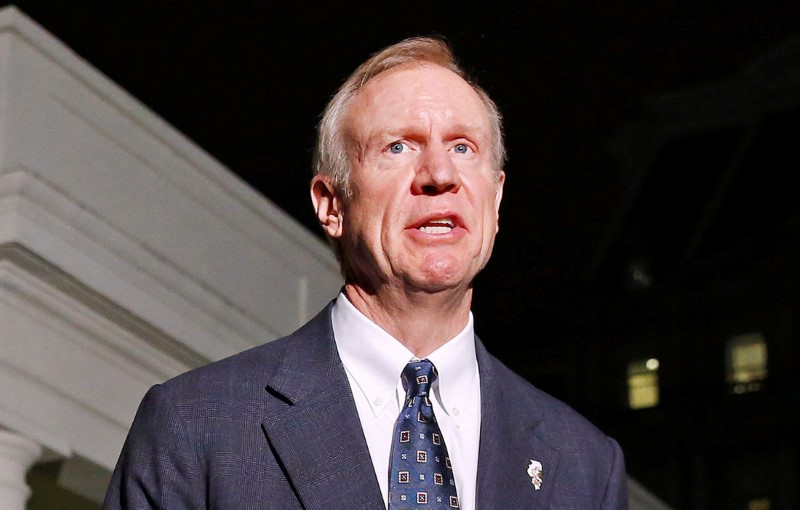By Timothy Mclaughlin
CHICAGO (Reuters) - Democratic lawmakers in Illinois on Thursday said they have placed on hold a bill that expands state-funded coverage of abortions for low-income residents and state employees but faces a likely veto from the state's Republican governor.
The bill, which received final passage in a 33-22 state Senate vote on Wednesday, also aims to keep abortions legal in Illinois if the U.S. Supreme Court follows President Donald Trump's call to overturn its landmark Roe v. Wade ruling that made abortions legal 44 years ago.
Democratic state Senator Don Harmon filed a motion Wednesday night to reconsider the Senate's vote, meaning the bill will not immediately be sent to Governor Bruce Rauner.
“This measure is too important to immediately put it in the hands of a governor whose public opinions about women's access to safe, affordable reproductive health care have been inconsistent at best,” Harmon said in a statement on Thursday.
The Senate can hold the bill for the duration of the legislative session, said Harmon spokeswoman Jayette Bolinski.
Illinois' Medicaid program covers abortions in cases of rape, incest and when a mother's life or health is threatened. The expansion would enable poor women to obtain elective abortions. Also, the legislation would allow state employees to have the procedures covered under state health insurance.
A spokeswoman for Rauner declined to comment on Thursday.
Rauner, who faces re-election next year, has promised to veto the legislation, saying Illinois should focus on less “divisive” issues and instead pass a full-year operating budget for the first time in nearly two years.
A veto would be a sharp turn from his previous position, which political opponents are poised to exploit. As a candidate in 2014, he supported expanding abortion access.
Illinois, the country's fifth-largest state, is immersed in one of the most politically turbulent eras in its 199-year history.
Rauner has feuded with Democrats, who control the state legislature, over his insistence a state budget be tied to his list of policy demands that would weaken unions, impose legislative term limits, freeze property taxes and impose new rules on injured workers seeking compensation from their employers.

With House Speaker Michael Madigan and fellow Democrats blocking that agenda, Illinois has been without a complete budget during Rauner's first two years in office. The fiscal futility has left Illinois - the only state ever to go 22 months without a budget - with around $12.2 billion in unpaid bills as of Wednesday.